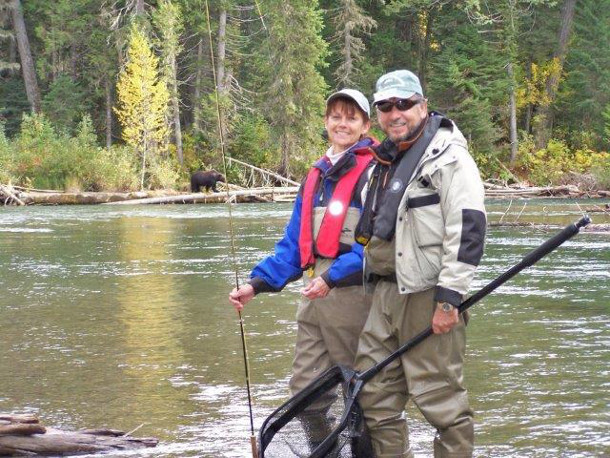The British Columbia government has given the green light for Imperial Metals to re-open its Mount Polley mine, 11 months after the mine's tailings pond broke and dumped 25 million cubic metres of toxin-laden sludge into the environment near Williams Lake.
The firm received a "conditional" permit that will allow it to unload waste water into a mining pit on site, which has been deemed safe by inspectors. For now, Imperial Metals is forbidden from discharging any water off-site or into the failed tailings storage facility.
But Mines Minister Bill Bennett expressed confidence that the firm could successfully get permits for those activities by next summer -- so long as authorities are convinced they are safe and pose no risk to the environment.
In a teleconference on Thursday, Bennett said the "careful" decision to reopen Mount Polley is welcome in the Cariboo region, with more than 200 workers set to return to their jobs.
Imperial Metals will still have to jump through two more hoops before any long-term operating plan is approved, he said. "From mid-July until sometime early mid-fall, they will be allowed to operate -- to keep these families working and to generate some revenue for the company."
Before full operations resume, Mount Polley must obtain a water discharge permit by this fall, and submit a "long-term plan" next year, the minister said. No permit will be issued unless the water discharged into the environment is safe for both drinking and aquatic organisms, he said.
Broken dam, broken business
For fishing guide Skeed Borkowski, the Aug. 4 disaster marred the 20th anniversary year of his Northern Lights Lodge on Quesnel Lake. Last summer, after the mine's waste tumbled through the watershed near the lodge, the 67-year-old bemoaned: "They killed my beautiful lake."
Reached by phone today, Borkowski declared his support for the mine re-opening, but maintains that the province didn't do enough to consider the social and economic damage of the failure, or speak one-on-one with the locals most impacted. He said he lost business and customers over the spill.
"Our friends, family and the community need this," he said of the re-opening. "But I'm not impressed with the way we've been treated by the government. It wasn't my dam that broke, but it was my business that has almost gone broke because of it… We're such a small community, we're basically collateral damage here."
When The Tyee brought these concerns to Minister Bennett, he replied that local residents and businesses have been adequately consulted and kept abreast of developments and investigations over the past 11 months, including through "several public meetings" attended by representatives of the ministries of environment and mines.
"There's been quite a bit of opportunity for local governments, chambers of commerce and citizens to know what's happening in terms of the accident and the re-start," Bennett said. "There's been lots of consultation. In terms of compensation, it isn't government policy that local businesses would be compensated under these kinds of circumstances."
Aim to re-open on 'permanent basis'
In the same Thursday teleconference, David Morel, assistant deputy minister of B.C.'s Mines and Mineral Resources Division, said that Mount Polley operators have conducted drilling below the mine's breached tailings storage facility, as well as built buttresses to reinforce the earthen structure, suggesting plans to resume use of the facility in the future.
A government-appointed panel of engineers concluded in January that an unstable foundation was largely to blame for the dam's collapse.
Bennett said it's unlikely that Mount Polley could permanently re-open without the use of the same tailings facility that failed, but that "a lot of work" is needed to ensure its safety.
"We are very pleased to hear that the company intends to re-open on a permanent basis," Bennett said. "That is good news for the province and it's good news for the region."
Imperial Metals did not return phone or emailed requests for an interview in time for publication.
'No one wanted this to happen'
While the return of mining jobs may be welcome news for many, the scars of the 2014 disaster remain. Hazeltine Creek, which flows below the dam, has seen extensive cleanup work, but much of the slurry deposited at the deep bottom of Quesnel Lake remains unaddressed.
Borkowski used to drink the water from Quesnel Lake, but said that since the spill he hasn't "had a sip."
"No one really knows what's in there," he said of toxins such as mercury, arsenic and lead that the company itself declared were in its tailings pond.
Borkowski said authorities still have much to learn from the largest mine tailings accident in Canadian history. "I'm sure no one wanted this to happen, but it did. There should have been more caution taken right from the beginning."
He said his beloved lake "will never be the same," and the damage is done.
"At 67 years old, it's a little late to start over," he said. "We don't have 10 years to rebuild the business. This is the age where we cram for finals before we circle the drain." ![]()
Read more: Labour + Industry, BC Politics, Environment















Tyee Commenting Guidelines
Comments that violate guidelines risk being deleted, and violations may result in a temporary or permanent user ban. Maintain the spirit of good conversation to stay in the discussion.
*Please note The Tyee is not a forum for spreading misinformation about COVID-19, denying its existence or minimizing its risk to public health.
Do:
Do not: